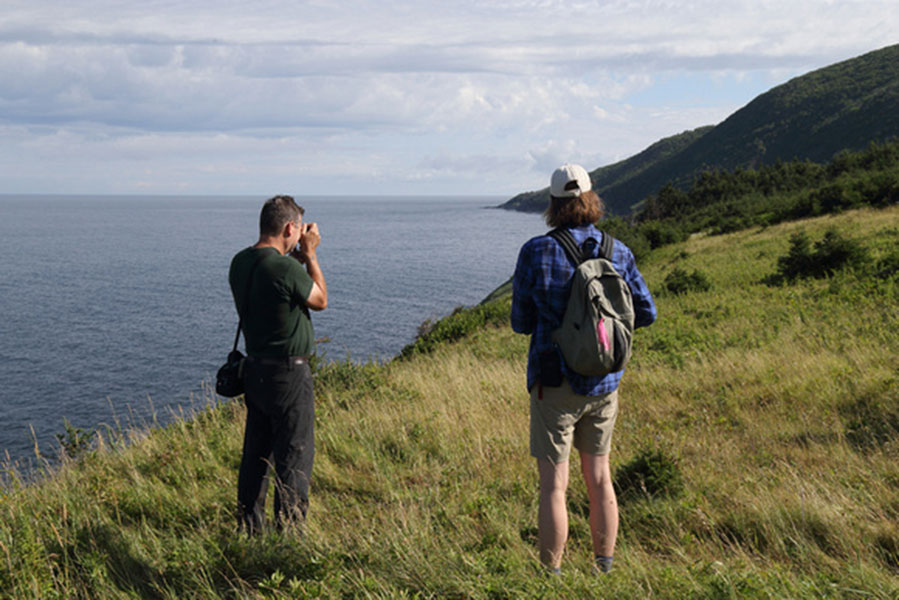BADDECK: The Nature Conservancy of Canada (NCC) is embarking on its first large-scale conservation project in Cape Breton, with the goal of protecting 5,000 acres (2,000 hectares) of ecologically-significant land in the central part of the island over the next 10 years.
The charitable land trust is seeking to acquire private land containing outstanding natural features found around the Bras d’Or Lake and in the Margaree River Valley.
NCC Atlantic director of communications, Kathryn Morse, explained the areas of particular interest include River Denys, Marble Mountain, Margaree Forks, and Baddeck.
Priorities for conservation are rare gypsum-based ecosystems, riverside floodplains and wetlands, old Acadian forest, and habitat for species at risk. There are 18 federally-listed species at risk and 20 provincially-listed species at risk in this region of central Cape Breton.
When asked if their efforts could hurt attempts at spurring economic activity, such as mining or forestry, Morse noted that the NCC only works with landowners who want to work with them.
“… So if someone owns land that could be valuable for mining or forestry, they are unlikely to consider conserving it. We are also talking about relatively small parcels of land compared to the size of central Cape Breton—usually we conserve properties that are 50-200 acres in size,” Morse explained.
Morse also pointed out that the NCC’s preservation plans can provide an economic boost to Cape Breton.
“Because tourism is so important to Cape Breton, and the natural beauty of the island is a big reason why tourists visit, we expect our conservation efforts will have a positive impact on economic development,” Morse stated.
“Especially as ecotourism grows, more people are looking for ways to enjoy places that have been conserved for wildlife habitat and outdoor recreation.”
For the past two years NCC’s staff in Nova Scotia has been working to develop a science-based conservation plan and to identify priority areas in Cape Breton. Now that the plan is completed, NCC is reaching out to people who wish to see their properties in central Cape Breton conserved permanently for the benefit of wildlife and for community recreation.
“Cape Breton not only has some of the most beautiful landscapes in Atlantic Canada, it has some of the most important ones from the point of view of conserving biodiversity and valuable wildlife habitat. Central Cape Breton contains increasingly-rare old forest habitat that supports at-risk species such as marten and lynx. It also has ecosystems formed on top of gypsum and limestone that are globally rare and have received virtually no protection to date in Nova Scotia,” says Craig Smith, Nova Scotia Program Director for the Nature Conservancy of Canada.
“We look forward to talking with landowners interested in helping us conserve these valuable wildlife habitats and special places.”
The Nature Conservancy of Canada began its work in Atlantic Canada in Cape Breton with the conservation of Sight Point, in the Mabou Highlands, in 1971. Since then NCC has conserved more than 32,000 acres of exceptional land and valuable wildlife habitat in Nova Scotia.

The Nature Conservancy of Canada’s work is made possible through the generous financial donations of individuals, families, businesses, foundations and other groups. NCC’s conservation projects are supported in part by Environment and Climate Change Canada through the Natural Areas Conservation Program. The Government of Canada also provides tax incentives to land owners wishing to donate ecologically-significant properties for conservation. The Nova Scotia Crown Share Land Legacy Trust also supports NCC’s conservation projects.
The Nature Conservancy of Canada is the nation’s leading land conservation organization, working to protect our most important natural areas and the species they sustain. Since 1962 NCC and its partners have helped to protect 2.8 million acres (1.1 million hectares), coast-to-coast. The Nature Conservancy of Canada has conserved more than 71,000 acres (28,700 hectares) in the Atlantic provinces.


